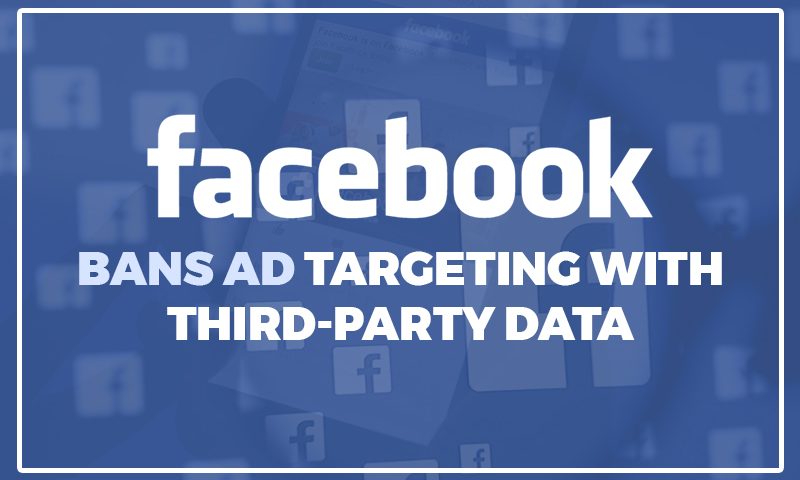Facebook Bans Ad Targeting With Third-Party Data

How To Promote Your Local Business On Facebook in 4 Simple Steps
March 20, 2018
Online Reputation Management for Local Businesses: Why It Matters
June 13, 2018Facebook Bans Ad Targeting With Third-Party Data
As Facebook continues to face heightened scrutiny and regulatory pressures amid the fallout from the Cambridge Analytica privacy scandal, the social media giant has made a major change in its advertising system. Facebook has announced that it is permanently shutting down its ad product called Partner Categories.
Launched in 2013, Partner Categories allowed third-party data providers like Experian, Oracle Data Cloud, and Acxiom to offer their targeting directly on Facebook. Under this common industry practice, third-party aggregators pair offline data, such as purchasing activity or household income, with Facebook’s own dataset to target ads better.
To be clear, Partner Categories is not the product which gave data mining firm Cambridge Analytica access to almost 50 million Facebook profiles. That breach came from a third-party app developer who violated Facebook’s terms of service and didn’t seek users’ permission before accessing their data.
Why is Facebook Disabling Partner Categories?
Now, if you are wondering why this product is being banned by Facebook if it isn’t linked to the privacy scandal, the answer is pretty simple. At this time, Facebook’s sole concentration is on improving users’ privacy on the social media platform. So, in a broader effort to clean up its act and change the way it interacts with third parties, Facebook is doing all that it can to diminish creepy advertising practices.
But that’s not the only reason behind this move. The General Data Protection Regulation and the ePrivacy Directive are coming into effect in Europe in the coming months. These new laws want to ensure that European citizens have full control over their personal data. And any company that wants to collect that data must get explicit consent from the user. The law will be applicable to citizens living not only in Europe but all over the world, and companies found in violation can be fined up to 4% of their global revenue.
Not surprisingly then Partner Categories will be disabled over the next six months to help Facebook stay away from future privacy scandals. What are your views on this change? Let us know in comments below!




